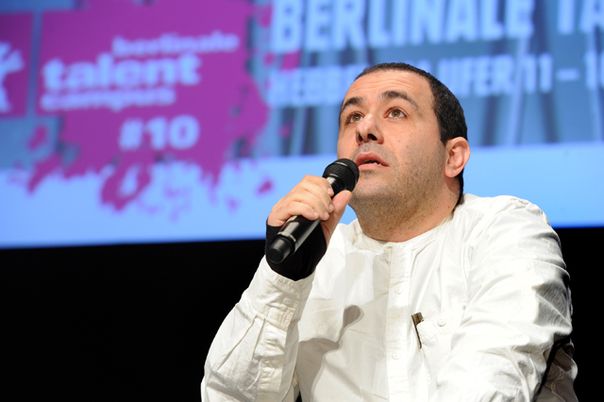A Visa for Filmmaking
An interview with Lebanese filmmaker Mahmoud Hojeij, part of the Berlinale Shorts with his IMPOSSIBLE EXCHANGE.

Mahmoud Hojeij
Lebanese filmmaker Mahmoud Hojeij partakes in the Berlinale Shorts programme with the film IMPOSSIBLE EXCHANGE, made from footage of an uncomfortable scene he witnessed on his honeymoon in Egypt.
Your movie IMPOSSIBLE EXCHANGE begins with a provocative proposition about visa. You also have a 2001 project called TRANSIT VISA. Visa seem to be a very important issue in your work, why is that?
Basically to highlight the fact that there are certain people in this world that need a piece of paper to cross between countries. And this is not easy to get, it's actually very difficult. For them to give you that piece of paper you need to get a lot of documents and give a lot of information about yourself. This gathering and collecting takes weeks. Once they grant you a visa, it's not actually guaranteed, and sometimes they give you a visa for only four days. And you have to pay, even if you don't get it. And this process is kind of humiliating, it's not nice. So that's why, that's one of the ideas, one of the messages of the film.
How is the Lebanese film scene nowadays?
There's a big scene of filmmakers in Lebanon. Like in any other country there are a lot of filmmakers, and they're making shorts and feature films. The main difference is that it's not supported by the government. Most of the Lebanese young filmmakers, though, end up working for TV in Lebanon and in the Gulf. Even though they study film, they don't work in film. They work in TV or advertising.
You said there is no support from your government to produce films, how do Lebanese filmmakers manage this situation?
Through grants, commissions or private investors – such as advertising agencies, companies, sometimes private money, from banks, institutions… They have this kind of industrial cycle, and they decide from time to time to produce some short films and some films that they like. Sometimes they choose certain topics – like politics, the environment or tourism – and give money to others to make films about these certain topics.
Do you think it's getting easier to make movies in Lebanon?
It's not easy at all, it's extremely difficult. It has being difficult for the last 15 years, it's never easy, and it's not getting easier.
What projects are you working on now?
I just finished filming my first feature film, two weeks ago. It's called STABLE UNSTABLE. It's about psychology in Lebanon. We finished shooting, and I plan to edit it now, and finish the film. After that film, I have no idea. Making a movie is very difficult and it's a very long process.


301 Moved Permanently